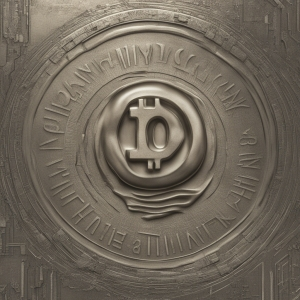Table of Contents:
Introduction to ICO Risk Assessment
Initial Coin Offerings, or ICOs, have become a popular way for startups in the technology and blockchain industries to raise funds. These campaigns involve selling a new cryptocurrency or digital token to early investors. Despite the potential for high returns, investing in ICOs comes with substantial risk. This risk arises from project failure, fraud, and regulatory changes, among other factors. This article intends to guide beginners on conducting an ICO risk assessment and identifying potential red flags. Understanding these risks can provide a roadmap for making safer investment decisions.
Understanding Initial Coin Offerings (ICOs)
Before we delve into the risks associated with ICOs, it's important to understand what an ICO is. An ICO is a fundraising method used by startups, particularly in the tech and blockchain sectors. Instead of offering shares in the company, the firm develops a new cryptocurrency and sells it to investors. This digital currency is often referred to as 'tokens', and their value can increase over time if the business succeeds.
The Best Mining Providers at a Glance
» Infinity HashFrom our perspective, currently the best mining provider on the market. With the community concept, you participate in a mining pool completely managed by professionals. A portion of the earnings are used for expansion and maintenance. We've never seen this solved as cleanly anywhere else.
» Hashing24A well-known and established cloud hosting company. With a good entry point and in a good market phase, a good ROI can also be generated with some patience. Unfortunately, we see the durations as a major drawback.
The main allure of an ICO lies in its potential for high returns. Early bird investors have the opportunity to purchase tokens at a significantly lower cost, which can generate significant profits if the startup becomes successful. However, ICOs are also associated with substantial risks, and it’s vital to conduct a thorough evaluation before investing.
Evaluation of Risks and Benefits in ICOs
| Pros | Cons |
|---|---|
| High potential for returns | Risk of scams |
| Provides funding for new projects | Unregulated market |
| Liquidity through tokenization | Vulnerability to hacking |
| Access to a global pool of investors | Potential lack of investor interest |
| Possibility of driving innovation | Risk of legal repercussions due to undefined regulation |
| Benefit from blockchain transparency | Volatile market can lead to sudden losses |
Identifying Red Flags in ICOs

One of the first steps in conducting an ICO risk assessment involves checking for potential red flags. Misleading or vague information, lack of a clear business model, and anonymous team members are just a few warning signs to look out for. Here are specific red flags that you should be wary of:
Insufficient Information
Startups should provide a comprehensive whitepaper detailing their business model, the purpose of the token and the team behind the project. If an ICO lacks this or provides only vague details, consider this a red flag.
The Absence of a Clear Business Model

A legitimate ICO should have a solid business model that clearly defines how the company plans to generate revenue. If this model isn’t clear or seems questionable, it might be best to steer clear of such an investment.
Anonymous Team Members
If the team behind an ICO prefers to stay anonymous, tread carefully. Knowing who’s behind the project can give investors a sense of security. As transparency is the backbone of the blockchain industry, anonymous team members are a significant red flag.
Unrealistic Promises

Another red flag to look out for are unrealistic or over-hyped promises about the potential profits. A good investment does not require hype. So if a company is promising sky-high returns with no basis, treat this as a clear warning sign.
Case Study: ICOs Gone Wrong
Having discussed potential warning signs, it's also crucial to understand the possible outcomes when red flags in ICOs are dismissed. Let's delve into a few case studies of ICOs where investors experienced significant losses.
The DAO Incident
The Decentralized Autonomous Organization, known as The DAO, raised over $150 million in its ICO in 2016, making it one of the largest fundraisers in crypto history. Unfortunately, due to a software flaw, hackers managed to drain more than a third of the raised funds. This incident revealed the potential vulnerability of ICOs to hacks, highlighting the importance of in-depth technical risk assessment.
Centra Tech Fraud
In another case, Centra Tech, endorsed by celebrities like Floyd Mayweather and DJ Khaled, was revealed to be a scam. Despite raising $32 million in their ICO, the founders were subsequently arrested for fraud. They had made false claims about their product and partnerships with major credit card companies, highlighting the importance of verifying such claims before investing.
BitConnect Scandal
BitConnect, once a top 20 cryptocurrency with a market cap over $2 billion, turned out to be a Ponzi scheme. They promised investors up to 40% monthly returns but shut down abruptly, causing massive losses for investors. This case serves as a warning against ICOs promising unrealistic returns.
In conclusion, these cases emphasize the importance of proper risk assessment before investing in an ICO. They illustrate the need for scepticism, transparency checks, and the avoidance of projects making empty promises.
Tools and Tips for ICO Risk Assessment
Having a structured approach to ICO risk assessment can help you spot potential red flags. Here are some tools and tips for evaluating the risk associated with ICO investments:
Use ICO Rating Websites
Several websites provide ICO ratings based on criteria like the project's team, vision, product, and token utility. Some popular ICO rating websites include ICO Bench, ICO Marks, and Track ICO. These platforms can serve as a helpful starting point.
Verify the Team’s Credentials
Verification of the team members associated with the ICO is an important step. Use professional networking sites like LinkedIn to check the team’s credibility and track record.
Check for Code Audits
For technology-driven projects, it's a good sign if the team has subjected their code to a third-party audit. This shows the team's commitment to security and transparency.
Analyze the Tokenomics
Tokenomics refers to the economics of the ICO's tokens. Understanding how tokens are distributed, their supply, and their projected demand can provide insight into the ICO's potential valuation and profitability.
Social Media Presence and Community Feedback
Closely observing an ICO's social media presence and community feedback can be telling. If there are unanswered queries or a lack of communication from the project team, it might be a sign of problems.
Consult Legal and Financial Advisors
As ICO investments can be complex and risky, getting expert opinions from legal and financial advisors can be beneficial. They can provide personalized advice based on your financial situation and risk tolerance.
By using these tools and following these tips, you can conduct a comprehensive ICO risk assessment. However, remember that these tools are just aids, and conducting in-depth personal research is integral to making informed investment decisions.
Conclusion: Making Smart Crypto Investments
Investing in ICOs can be a rewarding venture if navigated correctly. Anyone considering such an investment must carry out comprehensive risk assessment studies. Remember to scrutinize the project’s whitepaper thoroughly and corroborate all the claims made by the ICO. Legitimate ICOs will always provide solid and verifiable information, so strive always evade investments surrounded by ambiguity.
Assess the credibility of team members and verify their professional backgrounds. Don't forget to use ICO rating websites for the additional perspective. Steer clear from ICOs making unrealistic promises. Instead, opt for projects with viable and sustainable business models.
Smart crypto investing lies not just in spotting impacts but also being prepared to take calculated risks based on thorough research and analysis. As much as ICOs offer a new frontier for acquisition of assets and wealth creation, always remember; the age-old saying, “Don't put all your eggs in one basket," holds truth even in the rapid-paced, high-stakes world of ICO investments.
Understanding the Risk Assessment of ICOs: Spotting Red Flags
What is ICO?
ICO stands for Initial Coin Offering, which is a fundraising mechanism for new projects. It’s a way to raise money by issuing a new cryptocurrency.
What are the potential red flags in ICOs?
Potential red flags can include unrealistic promises on returns, unknown team members, lack of clear business plan, and lack of transparency in terms of the project's development.
What should I look for in an ICO?
One should look at the team members, the project's viability, clear use-case of the coin, and transparency of the project's development. Additionally, it’s important to consider the market and competitive environment.
How can I protect myself from ICO scams?
Do thorough research on the project and the team, understand the use-case of the coin, and consider getting advice from financial advisors who specialize in cryptocurrency.
How can I assess the risk of an ICO?
Assessing the risk of an ICO includes considering its project viability, team expertise, legal and commercial risks, and the transparency of the project's processes.










